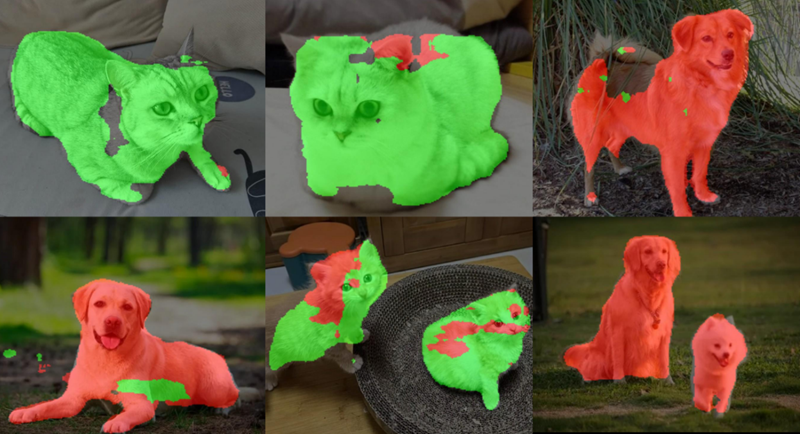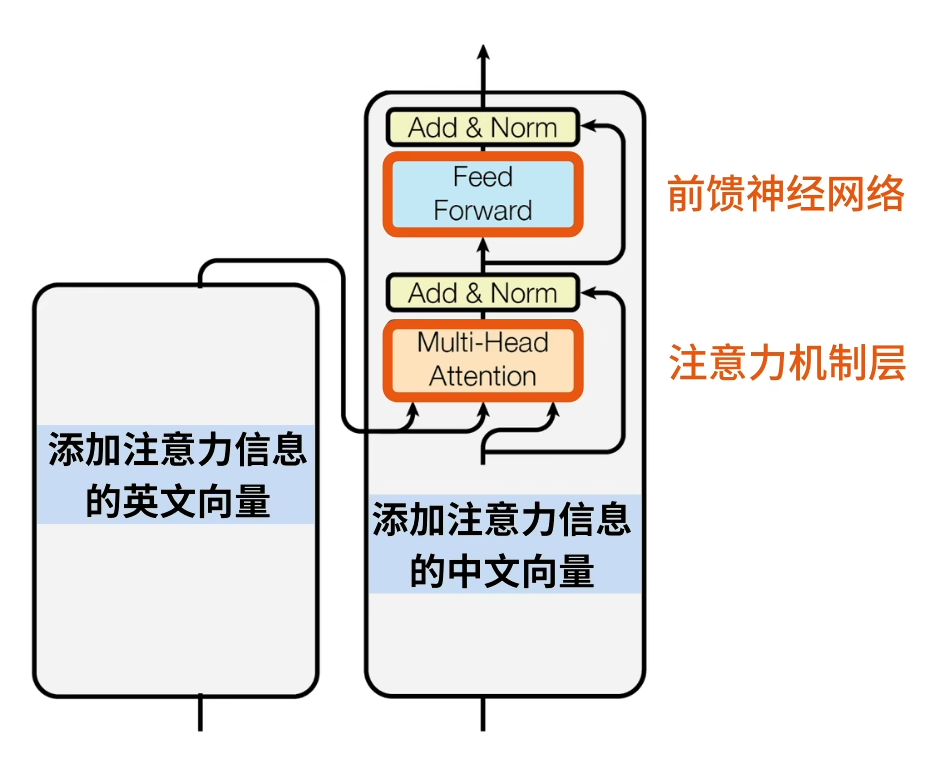智能指针
智能指针是一种能够自动维护对象引用计数的技术
- 引用了一个实际使用的对象,而不是一个指针
- 智能指针构造时,增加它所引用的对象的引用计数
- 智能指针析构时,减少它所引用的对象的引用计数
但智能指针无法解决循环引用问题,引入强引用计数和弱引用计数
- 对象的生命周期只受强引用计数控制
- 将有关联的对象划分为“父-子”和“子-父”关系
- 在“父-子”关系中,“父”对象通过强引用计数来引用“子”对象
- 而在“子-父”关系中,“子”对象通过弱引用计数来引用“父”对象
- 如A通过强引用计数来引用B,而B通过弱引用计数来引用A,A的生命周期不受B的影响,当A不再使用时可以安全地释放
- 当B想要使用A时,先要成功地将A的弱引用计数升级为强引用计数,若升级失败,那么就说明A已经被释放,不能再使用
Android系统提供了三种类型的C++智能指针
- 轻量级指针——引用计数
- 强指针——强引用计数
- 弱指针——弱引用技术
轻量级指针
LightRefBase
一个类的对象要支持使用轻量级指针,需继承LightRefBase,其在frameworks/rs/cpp/util/RefBase.h(Android13)
template <class T>
class LightRefBase
{
public:
inline LightRefBase() : mCount(0) { }
inline void incStrong(__attribute__((unused)) const void* id) const {
__sync_fetch_and_add(&mCount, 1);
}
inline void decStrong(__attribute__((unused)) const void* id) const {
if (__sync_fetch_and_sub(&mCount, 1) == 1) {
delete static_cast<const T*>(this);
}
}
//! DEBUGGING ONLY: Get current strong ref count.
inline int32_t getStrongCount() const {
return mCount;
}
typedef LightRefBase<T> basetype;
protected:
inline ~LightRefBase() { }
private:
friend class ReferenceMover;
inline static void moveReferences(void*, void const*, size_t,
const ReferenceConverterBase&) { }
private:
mutable volatile int32_t mCount;
};
- 模板类,T表示对象的实际类型,需继承LightRefBase
- mCount 描述对象的引用计数值
- incStrong和decStrong 用来增加/减少它所引用对象的引用计数,减少到0释放内存
sp
sp用于轻量级指针,同时也用于强指针,其在frameworks/rs/cpp/util/StrongPointer.h(Android13)
template <typename T>
class sp
{
public:
inline sp() : m_ptr(0) { }
sp(T* other); // NOLINT, implicit
sp(const sp<T>& other);
template<typename U> sp(U* other); // NOLINT, implicit
template<typename U> sp(const sp<U>& other); // NOLINT, implicit
~sp();
// Assignment
sp& operator = (T* other);
sp& operator = (const sp<T>& other);
template<typename U> sp& operator = (const sp<U>& other);
template<typename U> sp& operator = (U* other);
//! Special optimization for use by ProcessState (and nobody else).
void force_set(T* other);
// Reset
void clear();
// Accessors
inline T& operator* () const { return *m_ptr; }
inline T* operator-> () const { return m_ptr; }
inline T* get() const { return m_ptr; }
// Operators
COMPARE(==)
COMPARE(!=)
COMPARE(>)
COMPARE(<)
COMPARE(<=)
COMPARE(>=)
private:
template<typename Y> friend class sp;
template<typename Y> friend class wp;
void set_pointer(T* ptr);
T* m_ptr;
};
- 模板类,T表示对象的实际类型,需继承LightRefBase
- m_ptr 在构造函数中初始化,指向实际引用的对象
sp类的构造函数如下,初始化m_ptr(指向LightRefBase子类),调用LightRefBase类incStrong增加它的引用计数
template<typename T>
sp<T>::sp(T* other)
: m_ptr(other)
{
if (other) other->incStrong(this);
}
sp类的析构函数如下,调用 LightRefBase类decStrong 减少它的引用计数
template<typename T>
sp<T>::~sp()
{
if (m_ptr) m_ptr->decStrong(this);
}
实例分析
external/lightpointer/lightpointer.cpp
强指针和弱指针
RefBase
一个类的对象要支持使用轻量级指针,需继承RefBase,其在frameworks/rs/cpp/util/RefBase.h(Android13)
class RefBase
{
public:
void incStrong(const void* id) const;
void decStrong(const void* id) const;
void forceIncStrong(const void* id) const;
//! DEBUGGING ONLY: Get current strong ref count.
int32_t getStrongCount() const;
class weakref_type
{
public:
RefBase* refBase() const;
void incWeak(const void* id);
void decWeak(const void* id);
// acquires a strong reference if there is already one.
bool attemptIncStrong(const void* id);
// acquires a weak reference if there is already one.
// This is not always safe. see ProcessState.cpp and BpBinder.cpp
// for proper use.
bool attemptIncWeak(const void* id);
//! DEBUGGING ONLY: Get current weak ref count.
int32_t getWeakCount() const;
//! DEBUGGING ONLY: Print references held on object.
void printRefs() const;
//! DEBUGGING ONLY: Enable tracking for this object.
// enable -- enable/disable tracking
// retain -- when tracking is enable, if true, then we save a stack trace
// for each reference and dereference; when retain == false, we
// match up references and dereferences and keep only the
// outstanding ones.
void trackMe(bool enable, bool retain);
};
weakref_type* createWeak(const void* id) const;
weakref_type* getWeakRefs() const;
//! DEBUGGING ONLY: Print references held on object.
inline void printRefs() const { getWeakRefs()->printRefs(); }
//! DEBUGGING ONLY: Enable tracking of object.
inline void trackMe(bool enable, bool retain)
{
getWeakRefs()->trackMe(enable, retain);
}
typedef RefBase basetype;
protected:
RefBase();
virtual ~RefBase();
//! Flags for extendObjectLifetime()
enum {
OBJECT_LIFETIME_STRONG = 0x0000,
OBJECT_LIFETIME_WEAK = 0x0001,
OBJECT_LIFETIME_MASK = 0x0001
};
void extendObjectLifetime(int32_t mode);
//! Flags for onIncStrongAttempted()
enum {
FIRST_INC_STRONG = 0x0001
};
virtual void onFirstRef();
virtual void onLastStrongRef(const void* id);
virtual bool onIncStrongAttempted(uint32_t flags, const void* id);
virtual void onLastWeakRef(const void* id);
private:
friend class ReferenceMover;
static void moveReferences(void* d, void const* s, size_t n,
const ReferenceConverterBase& caster);
private:
friend class weakref_type;
class weakref_impl;
RefBase(const RefBase& o);
RefBase& operator=(const RefBase& o);
weakref_impl* const mRefs;
};
- 不同于LightRefBase,使用weakref_impl对象(即mRefs)维护对象的引用计数,而非整数
weakref_impl
weakref_impl同时为对象提供了强引用计数和弱引用计数,其在./system/core/libutils/RefBase.cpp(Android13)
class RefBase::weakref_impl : public RefBase::weakref_type
{
public:
std::atomic<int32_t> mStrong;
std::atomic<int32_t> mWeak;
RefBase* const mBase;
std::atomic<int32_t> mFlags;
#if !DEBUG_REFS
explicit weakref_impl(RefBase* base)
: mStrong(INITIAL_STRONG_VALUE)
, mWeak(0)
, mBase(base)
, mFlags(OBJECT_LIFETIME_STRONG)
{
}
void addStrongRef(const void* /*id*/) { }
void removeStrongRef(const void* /*id*/) { }
void renameStrongRefId(const void* /*old_id*/, const void* /*new_id*/) { }
void addWeakRef(const void* /*id*/) { }
void removeWeakRef(const void* /*id*/) { }
void renameWeakRefId(const void* /*old_id*/, const void* /*new_id*/) { }
void printRefs() const { }
void trackMe(bool, bool) { }
#else
......
#endif
};
- weakref_impl 继承了 weakref_type,并实现其中方法
- mStrong / mWeak 描述强/弱引用计数,mBase指向它所引用对象的地址
mFlags 描述对象生命周期控制方法
- 0:只受强引用计数影响
- OBJECT_LIFETIME_WEAK:同时受强/弱引用计数影响
- OBJECT_LIFETIME_FOREVER:完全不受强/弱引用计数影响
强指针
sp
强指针实现类为sp,同上
sp构造函数
T为继承RefBase的子类
template<typename T>
sp<T>::sp(T* other)
: m_ptr(other)
{
if (other) other->incStrong(this);
}
实际调用RefBase的incStrong,RefBase在构造函数初始化mRefs
RefBase::RefBase()
: mRefs(new weakref_impl(this))
{
}
void RefBase::incStrong(const void* id) const
{
weakref_impl* const refs = mRefs;
refs->incWeak(id);
refs->addStrongRef(id);
const int32_t c = refs->mStrong.fetch_add(1, std::memory_order_relaxed);
ALOG_ASSERT(c > 0, "incStrong() called on %p after last strong ref", refs);
#if PRINT_REFS
ALOGD("incStrong of %p from %p: cnt=%d\n", this, id, c);
#endif
if (c != INITIAL_STRONG_VALUE) {
return;
}
int32_t old __unused = refs->mStrong.fetch_sub(INITIAL_STRONG_VALUE, std::memory_order_relaxed);
// A decStrong() must still happen after us.
ALOG_ASSERT(old > INITIAL_STRONG_VALUE, "0x%x too small", old);
refs->mBase->onFirstRef();
}
void RefBase::weakref_type::incWeak(const void* id)
{
weakref_impl* const impl = static_cast<weakref_impl*>(this);
impl->addWeakRef(id);
const int32_t c __unused = impl->mWeak.fetch_add(1,
std::memory_order_relaxed);
ALOG_ASSERT(c >= 0, "incWeak called on %p after last weak ref", this);
}
- 调用 incWeak 将this转为weakref_impl并调用mWeak.fetch_add增加弱引用计数
- 调用 mStrong.fetch_add 增加强引用计数
- 若是第一次被强指针引用,调用fetch_sub将强引用计数值设置为1(默认为INITIAL_STRONG_VALUE),然后调用 onFirstRef 处理相关业务,默认为空实现,需要子类自行实现
- 弱引用计数>=强引用计数
sp析构函数
同理,T为继承RefBase的子类
template<typename T>
sp<T>::~sp()
{
if (m_ptr) m_ptr->decStrong(this);
}
实际调用RefBase的decStrong
void RefBase::decStrong(const void* id) const
{
weakref_impl* const refs = mRefs;
refs->removeStrongRef(id);
const int32_t c = refs->mStrong.fetch_sub(1, std::memory_order_release);
#if PRINT_REFS
ALOGD("decStrong of %p from %p: cnt=%d\n", this, id, c);
#endif
LOG_ALWAYS_FATAL_IF(BAD_STRONG(c), "decStrong() called on %p too many times",
refs);
if (c == 1) {
std::atomic_thread_fence(std::memory_order_acquire);
refs->mBase->onLastStrongRef(id);
int32_t flags = refs->mFlags.load(std::memory_order_relaxed);
if ((flags&OBJECT_LIFETIME_MASK) == OBJECT_LIFETIME_STRONG) {
delete this;
// The destructor does not delete refs in this case.
}
}
refs->decWeak(id);
}
RefBase::~RefBase()
{
int32_t flags = mRefs->mFlags.load(std::memory_order_relaxed);
if ((flags & OBJECT_LIFETIME_MASK) == OBJECT_LIFETIME_WEAK) {
if (mRefs->mWeak.load(std::memory_order_relaxed) == 0) {
delete mRefs;
}
} else if (mRefs->mStrong.load(std::memory_order_relaxed) == INITIAL_STRONG_VALUE) {
ALOGW("RefBase: Explicit destruction, weak count = %d (in %p). Use sp<> to manage this "
"object.",
mRefs->mWeak.load(), this);
#if CALLSTACK_ENABLED
CallStack::logStack(LOG_TAG);
#endif
}
// For debugging purposes, clear mRefs. Ineffective against outstanding wp's.
const_cast<weakref_impl*&>(mRefs) = nullptr;
}
void RefBase::weakref_type::decWeak(const void* id)
{
weakref_impl* const impl = static_cast<weakref_impl*>(this);
impl->removeWeakRef(id);
const int32_t c = impl->mWeak.fetch_sub(1, std::memory_order_release);
LOG_ALWAYS_FATAL_IF(BAD_WEAK(c), "decWeak called on %p too many times",
this);
if (c != 1) return;
atomic_thread_fence(std::memory_order_acquire);
int32_t flags = impl->mFlags.load(std::memory_order_relaxed);
if ((flags&OBJECT_LIFETIME_MASK) == OBJECT_LIFETIME_STRONG) {
if (impl->mStrong.load(std::memory_order_relaxed)
== INITIAL_STRONG_VALUE) {
// Decrementing a weak count to zero when object never had a strong
// reference. We assume it acquired a weak reference early, e.g.
// in the constructor, and will eventually be properly destroyed,
// usually via incrementing and decrementing the strong count.
// Thus we no longer do anything here. We log this case, since it
// seems to be extremely rare, and should not normally occur. We
// used to deallocate mBase here, so this may now indicate a leak.
ALOGW("RefBase: Object at %p lost last weak reference "
"before it had a strong reference", impl->mBase);
} else {
// ALOGV("Freeing refs %p of old RefBase %p\n", this, impl->mBase);
delete impl;
}
} else {
impl->mBase->onLastWeakRef(id);
delete impl->mBase;
}
}
- 调用 mStrong.fetch_sub 减少强引用计数
- 当为0时调用 onLastStrongRef 处理相关业务,默认为空实现,需要子类自行实现
- 判断 mFlags 标志位,检查生命周期是否受弱引用计数控制,若为否则释放内存并调用RefBase的析构函数
- 在RefBase的析构函数中若发现弱引用计数为0则释放mRefs
当一个对象的强引用计数值为0时
- 当弱引用计数值大于0,只能释放RefBase,不能释放其内部的weakref_impl(因为还有其他的弱指针通过该weakref_impl对象来引用实际的对象)
- 当弱引用计数值为0,才可以释放weakref_impl
调用 decWeak 将this转为weakref_impl并调用 mWeak.fetch_sub 减少弱引用计数,若为0
- 若对象的生命周期只受强引用计数控制,且对象从来没有被强指针引用过,则打印输出记录(impl->mBase好像没释放?)
- 若对象的生命周期只受强引用计数控制,且被强指针引用过,当若弱引用计数为0时,decStrong释放该对象,decWeak释放其内部的weakref_impl
- 若对象的生命周期受弱引用计数控制或完全不受强/弱引用计数控制,调用onLastWeakRef处理业务并释放对象
弱指针
wp
wp用于弱指针,其在frameworks/rs/cpp/util/RefBase.h(Android13)
template <typename T>
class wp
{
public:
typedef typename RefBase::weakref_type weakref_type;
inline wp() : m_ptr(0) { }
explicit wp(T* other);
wp(const wp<T>& other);
explicit wp(const sp<T>& other);
template<typename U> explicit wp(U* other);
template<typename U> explicit wp(const sp<U>& other);
template<typename U> explicit wp(const wp<U>& other);
~wp();
// Assignment
wp& operator = (T* other);
wp& operator = (const wp<T>& other);
wp& operator = (const sp<T>& other);
template<typename U> wp& operator = (U* other);
template<typename U> wp& operator = (const wp<U>& other);
template<typename U> wp& operator = (const sp<U>& other);
void set_object_and_refs(T* other, weakref_type* refs);
// promotion to sp
sp<T> promote() const;
// Reset
void clear();
// Accessors
inline weakref_type* get_refs() const { return m_refs; }
inline T* unsafe_get() const { return m_ptr; }
// Operators
COMPARE_WEAK(==)
COMPARE_WEAK(!=)
COMPARE_WEAK(>)
COMPARE_WEAK(<)
COMPARE_WEAK(<=)
COMPARE_WEAK(>=)
inline bool operator == (const wp<T>& o) const {
return (m_ptr == o.m_ptr) && (m_refs == o.m_refs);
}
template<typename U>
inline bool operator == (const wp<U>& o) const {
return m_ptr == o.m_ptr;
}
inline bool operator > (const wp<T>& o) const {
return (m_ptr == o.m_ptr) ? (m_refs > o.m_refs) : (m_ptr > o.m_ptr);
}
template<typename U>
inline bool operator > (const wp<U>& o) const {
return (m_ptr == o.m_ptr) ? (m_refs > o.m_refs) : (m_ptr > o.m_ptr);
}
inline bool operator < (const wp<T>& o) const {
return (m_ptr == o.m_ptr) ? (m_refs < o.m_refs) : (m_ptr < o.m_ptr);
}
template<typename U>
inline bool operator < (const wp<U>& o) const {
return (m_ptr == o.m_ptr) ? (m_refs < o.m_refs) : (m_ptr < o.m_ptr);
}
inline bool operator != (const wp<T>& o) const { return m_refs != o.m_refs; }
template<typename U> inline bool operator != (const wp<U>& o) const { return !operator == (o); }
inline bool operator <= (const wp<T>& o) const { return !operator > (o); }
template<typename U> inline bool operator <= (const wp<U>& o) const { return !operator > (o); }
inline bool operator >= (const wp<T>& o) const { return !operator < (o); }
template<typename U> inline bool operator >= (const wp<U>& o) const { return !operator < (o); }
private:
template<typename Y> friend class sp;
template<typename Y> friend class wp;
T* m_ptr;
weakref_type* m_refs;
};
- 模板类,T表示对象的实际类型,需继承RefBase
- m_ptr 在构造函数中初始化,指向实际引用的对象
- 使用weakref_type类型的变量m_refs维护对象的弱指针引用
- 弱指针不可以直接操作它所引用的对象,因为它所引用的对象可能是不受弱引用计数控制的
- 如果需要操作一个弱指针所引用的对象,需要通过promote升级为强指针
wp构造函数
T为继承RefBase的子类
template<typename T>
wp<T>::wp(T* other)
: m_ptr(other)
{
if (other) m_refs = other->createWeak(this);
}
实际调用RefBase的createWeak、incWeak在上面有讲
RefBase::weakref_type* RefBase::createWeak(const void* id) const
{
mRefs->incWeak(id);
return mRefs;
}
wp析构函数
实际调用RefBase的decWeak,在上面有讲
template<typename T>
wp<T>::~wp()
{
if (m_ptr) m_refs->decWeak(this);
}
wp promote函数
wp没有重载*和->操作符,故不能直接操作它引用的对象,需要通过promote将弱引用升级为强引用
template<typename T>
sp<T> wp<T>::promote() const
{
sp<T> result;
if (m_ptr && m_refs->attemptIncStrong(&result)) {
result.set_pointer(m_ptr);
}
return result;
}
template<typename T>
void sp<T>::set_pointer(T* ptr) {
m_ptr = ptr;
}
m_refs是该对象内部的弱引用计数器,通过调用attemptIncStrong试图增加该对象的强引用计数,若成功则转变为sp
bool RefBase::weakref_type::attemptIncStrong(const void* id)
{
incWeak(id);
weakref_impl* const impl = static_cast<weakref_impl*>(this);
int32_t curCount = impl->mStrong.load(std::memory_order_relaxed);
ALOG_ASSERT(curCount >= 0,
"attemptIncStrong called on %p after underflow", this);
while (curCount > 0 && curCount != INITIAL_STRONG_VALUE) {
// we're in the easy/common case of promoting a weak-reference
// from an existing strong reference.
if (impl->mStrong.compare_exchange_weak(curCount, curCount+1,
std::memory_order_relaxed)) {
break;
}
// the strong count has changed on us, we need to re-assert our
// situation. curCount was updated by compare_exchange_weak.
}
if (curCount <= 0 || curCount == INITIAL_STRONG_VALUE) {
// we're now in the harder case of either:
// - there never was a strong reference on us
// - or, all strong references have been released
int32_t flags = impl->mFlags.load(std::memory_order_relaxed);
if ((flags&OBJECT_LIFETIME_MASK) == OBJECT_LIFETIME_STRONG) {
// this object has a "normal" life-time, i.e.: it gets destroyed
// when the last strong reference goes away
if (curCount <= 0) {
// the last strong-reference got released, the object cannot
// be revived.
decWeak(id);
return false;
}
// here, curCount == INITIAL_STRONG_VALUE, which means
// there never was a strong-reference, so we can try to
// promote this object; we need to do that atomically.
while (curCount > 0) {
if (impl->mStrong.compare_exchange_weak(curCount, curCount+1,
std::memory_order_relaxed)) {
break;
}
// the strong count has changed on us, we need to re-assert our
// situation (e.g.: another thread has inc/decStrong'ed us)
// curCount has been updated.
}
if (curCount <= 0) {
// promote() failed, some other thread destroyed us in the
// meantime (i.e.: strong count reached zero).
decWeak(id);
return false;
}
} else {
// this object has an "extended" life-time, i.e.: it can be
// revived from a weak-reference only.
// Ask the object's implementation if it agrees to be revived
if (!impl->mBase->onIncStrongAttempted(FIRST_INC_STRONG, id)) {
// it didn't so give-up.
decWeak(id);
return false;
}
// grab a strong-reference, which is always safe due to the
// extended life-time.
curCount = impl->mStrong.fetch_add(1, std::memory_order_relaxed);
// If the strong reference count has already been incremented by
// someone else, the implementor of onIncStrongAttempted() is holding
// an unneeded reference. So call onLastStrongRef() here to remove it.
// (No, this is not pretty.) Note that we MUST NOT do this if we
// are in fact acquiring the first reference.
if (curCount != 0 && curCount != INITIAL_STRONG_VALUE) {
impl->mBase->onLastStrongRef(id);
}
}
}
impl->addStrongRef(id);
654,17 79%
break;
}
// the strong count has changed on us, we need to re-assert our
// situation. curCount was updated by compare_exchange_weak.
}
if (curCount <= 0 || curCount == INITIAL_STRONG_VALUE) {
// we're now in the harder case of either:
// - there never was a strong reference on us
// - or, all strong references have been released
int32_t flags = impl->mFlags.load(std::memory_order_relaxed);
if ((flags&OBJECT_LIFETIME_MASK) == OBJECT_LIFETIME_STRONG) {
// this object has a "normal" life-time, i.e.: it gets destroyed
// when the last strong reference goes away
if (curCount <= 0) {
// the last strong-reference got released, the object cannot
// be revived.
decWeak(id);
return false;
}
// here, curCount == INITIAL_STRONG_VALUE, which means
// there never was a strong-reference, so we can try to
// promote this object; we need to do that atomically.
while (curCount > 0) {
if (impl->mStrong.compare_exchange_weak(curCount, curCount+1,
std::memory_order_relaxed)) {
break;
}
// the strong count has changed on us, we need to re-assert our
// situation (e.g.: another thread has inc/decStrong'ed us)
// curCount has been updated.
}
if (curCount <= 0) {
// promote() failed, some other thread destroyed us in the
// meantime (i.e.: strong count reached zero).
decWeak(id);
return false;
}
} else {
// this object has an "extended" life-time, i.e.: it can be
// revived from a weak-reference only.
// Ask the object's implementation if it agrees to be revived
if (!impl->mBase->onIncStrongAttempted(FIRST_INC_STRONG, id)) {
// it didn't so give-up.
decWeak(id);
return false;
}
// grab a strong-reference, which is always safe due to the
// extended life-time.
curCount = impl->mStrong.fetch_add(1, std::memory_order_relaxed);
// If the strong reference count has already been incremented by
// someone else, the implementor of onIncStrongAttempted() is holding
// an unneeded reference. So call onLastStrongRef() here to remove it.
// (No, this is not pretty.) Note that we MUST NOT do this if we
// are in fact acquiring the first reference.
if (curCount != 0 && curCount != INITIAL_STRONG_VALUE) {
impl->mBase->onLastStrongRef(id);
}
}
}
impl->addStrongRef(id);
#if PRINT_REFS
ALOGD("attemptIncStrong of %p from %p: cnt=%d\n", this, id, curCount);
#endif
// curCount is the value of mStrong before we incremented it.
// Now we need to fix-up the count if it was INITIAL_STRONG_VALUE.
// This must be done safely, i.e.: handle the case where several threads
// were here in attemptIncStrong().
// curCount > INITIAL_STRONG_VALUE is OK, and can happen if we're doing
// this in the middle of another incStrong. The subtraction is handled
// by the thread that started with INITIAL_STRONG_VALUE.
if (curCount == INITIAL_STRONG_VALUE) {
impl->mStrong.fetch_sub(INITIAL_STRONG_VALUE,
std::memory_order_relaxed);
}
return true;
}
- incWeak 先增加弱引用计数,然后后面判断是否可以增加强引用
- 将this转为weakref_impl
当强引用计数值大于0,且不等于INITIAL_STRONG_VALUEE,调用compare_exchange_weak增加强引用计数
当强引用计数值小于等于0,或等于INITIAL_STRONG_VALUEE
- 当生命周期受强引用影响,若强引用小于等于0则无法升级,减少弱引用。否则增加强引用,若增加失败,则减少弱引用
- 当生命周期受弱引用或完全不受强弱引用影响,调用onIncStrongAttempted判断对象是否允许强引用它,若允许则增加强引用,若在增加前被别人增加了,则调用onLastStrongRef
如果是第一次增加强引用,需要调用mStrong.fetch_sub修正为1
实例分析





